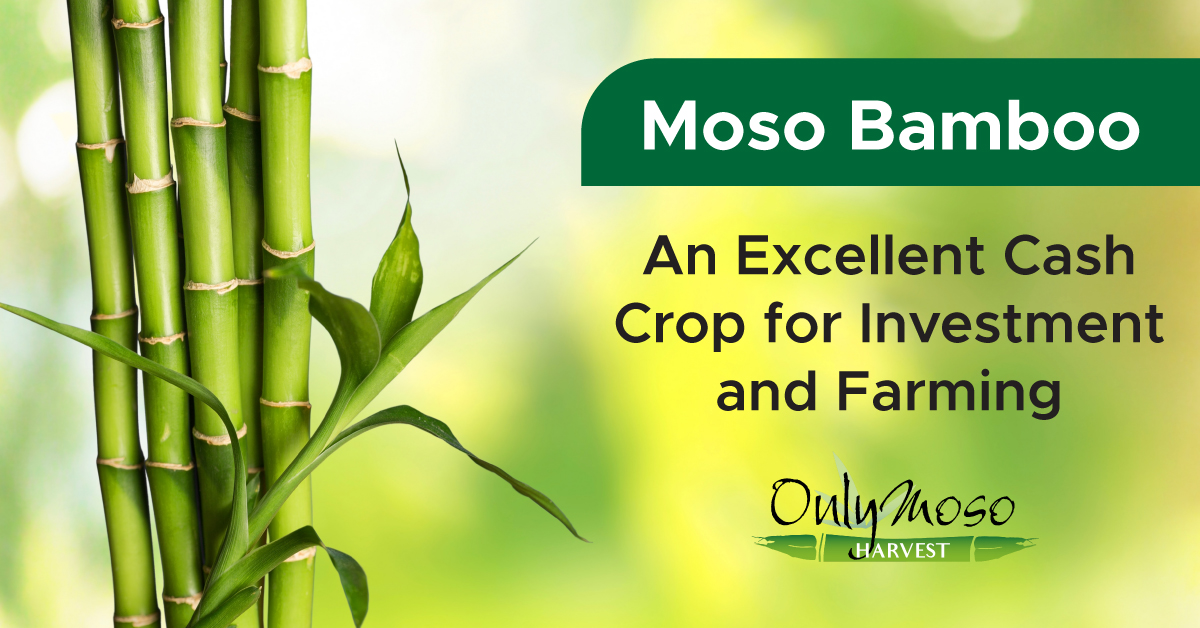Commercial Farming Asper Bamboo

Not many people know that bamboos are actually a grass – or more like giant grass! Well, Asper Bamboos are known as the giant bamboo species and just like other species, they are known for the rapid growth and perennial woody stems. Its culms are hollow with distinct internodes and nodes, branches and rhizomes.
These plants have started stirring worldwide attention in terms of commercial bamboo farming because of their multifarious uses and versatility. Their uses range from commercial foods from the young shoots to subsistence and building materials. It has the ability to offer ecological and economic benefits for everyone in the world and ironically, this plant can be found anywhere because of its ability to grow rapidly. To understand just how rapidly it grows, you should know that in 60 to 90 days, the culm of an Asper Giant can reach its full potential!
While we’ve established that they are easy to grow, you should also know that there are a lot of environmental benefits of growing Asper bamboo. This is so because they can cleanse the air we breathe more efficiently than other plants and even protect the environment. Bamboos are known to release 35% more oxygen than other plants because they sequester an estimated 12 tons per hectare of carbon dioxide from the air. This means that in the long run, it has the ability to protect the world from ultraviolet rays by reducing greenhouse gases.
Other than this, Asper bamboos are also great for soil conservation. With commercial bamboo farming, people have found that this plant’s widespread root system can effectively control erosion in the vicinity. Furthermore, it can even serve as great windbreaks alongside sustaining riverbanks.
Asper bamboos, like the other species of bamboo, are highly renewable materials. There is no need to replant them once their clump has been established. This clump will be able to produce new shoots every year and will be able to stand fully tall at 30 meters!
Bamboos are even great substitutes for wood. As the culm matures in just 3 years and builds enough strength, their properties will be quite comparable to species of wood. This is why their utility has been seen expanding to include transformations into several engineered bamboo products like structural panels and doors.
They are even a great source of food because it has become a vital vegetable in the daily meals of many people in Asia. It is also considered to be an ingredient that can be used as gourmet in some Western countries where they arrive mostly as imports. Other than this, Asper bamboos are also one of the exquisite components that are being used for landscape designs for an aesthetic and natural beauty.
So what should someone consider when planning for commercial bamboo farming? Growing Asper bamboo is actually quite easy, gratifying and fun. For whatever end product you are aiming for, growing them won’t require much of your effort, money and time. Even though large-scale bamboo growing is quite desirable, you can even be successful for your purpose if you start with a small scale.
Asper bamboos simply require sufficient sources of water and possibly uniform distributions of rainfall. These plants even love the sun because they will grow really well in such areas. Lastly, all soil and terrain types are perfect for bamboo growth with the only exceptions of waterlogged sites or ones that are continuously swampy.
Now that we know that commercial bamboo farming is relatively easy, we can look into its potential uses. Asper bamboos are multipurpose plants which have great economic and environmental values. These many uses of the plant have spread over to many new product and industries over the years.
Under the category of domestic use, Asper bamboo culms are manufactured into various garden, fame and home items. These are used in houses creatively with decorative craft purposes with numerous techniques. In some farms, bamboo poles are even used in place of functional fences, trellis or vegetable poles among other garden accessories or accents.
In terms of commercial production, these plants are used for arts, foods and even construction. This is because bamboo can become a great substitute for wood products and there are already many technologies that are using bamboo poles for strong construction materials. These include laminated bamboo floor tiles and concrete reinforcements among many others.
If you’re confused about its contribution to the food industry, you should know that the tender and young shoots of Asper bamboo are very nutritious and edible. In many parts of Asia and some western countries, these bamboo shoots have become a tasty food alternative.
With all these uses, commercial bamboo farming is being found by many to be quite inexpensive. For the 1st thee years, bamboos may work as a complementary crop for the other plants that have been employed there. From then onwards, your business will have sustainable and profitable yields without any expenses of replanting. This is where it would have become your economically and environmentally sustainable primary cash crop.
OnlyMoso: Your Green Mine
OnlyMoso offers both Moso Bamboo and Asper Bamboo. We offer giant bamboos as an excellent resource for eco-sustainability because they keep soil compact and prevent erosion caused by water. This plant does not require any machinery, pesticides or harsh chemicals for maintenance and has the ability to reduce greenhouse gases.
We are offering landowners and farmers the opportunity to make their own OnlyMoso Bamboo Farm with 50% financing from our company and 0% interest on plantation costs. There will also be discounts for large farms and mass purchases while the estimated ROI from a fully harvested acre can be 30k per acre per year from Moso Bamboo. Asper Bamboo, on the other hand, has an estimated annual ROI of 40k per acre per year. You can find out more by visiting our website or calling us for more information at (877) 340-6755. “Your Green Mine” is just a call away!

